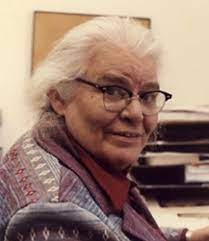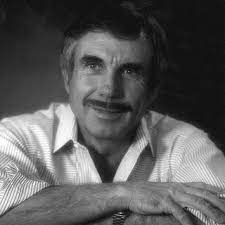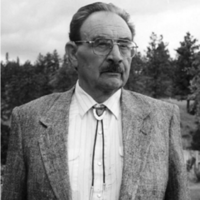Native American Heritage Month: Pioneers for Mental Health
November is Native American Heritage Month. A month used to celebrate the diverseness, traditions, and deep histories of native culture and to acknowledge the important and influential contributions of all Native people of our country.
Native American Heritage Month is a great opportunity to educate the public about Native tribes by bringing awareness to the unique challenges that Native Americans have faced and are still experiencing today. By showing the various ways the tribes and their citizens have worked together to conquer these challenges.
Carolyn Lewis Attneave
Carolyn Lewis Attneave is recognized as one of the most prolific scholars in the field of psychology. She is also one of the most well-known Native American psychologists; Dr. Attneave was the first Native American woman to get a degree in psychology in the United States. She is a descendant of the Delaware Indian tribe and attributes her career choice to her deep connection to her Native American heritage. Dr. Attneave earned her Ph.D. in psychology from Stanford University in 1952, focusing on working with children in the context of family and community development. Following graduation, she began working at the Oklahoma State Department of Health as the community guidance services coordinator while simultaneously providing services to 7 different Native American tribes. In 1968 Dr. Attneave relocated to Philadelphia to focus on refining retribalization by using network therapy for schizophrenic patients alongside Jay Haley and Ross Speck. Her next move was to Boston, where she was the Massachusetts Department of Health Public Service Program coordinator. This move was a pinnacle moment in her career. While living in Boston, Dr. Attneave founded one of North America’s largest Indian Centers, the Boston Indian Council. Following the start of that program, she then went on to found the Network of Indian Psychologists, a newsletter that exchanged information about services available to Native American communities. Dr. Attneave developed Networking Theory as it related to families in the 1970s. But all of Dr. Attneaves dedicated work led her to the department of behavioral sciences at the Harvard School of Public Health, where she produced a nine-volume set of documents on the mental health needs, service networks, and utilization patterns for the Indian Health Service. Dr. Attneave spent the last 15 years of her career as a distinguished professor of psychology at the University of Washington and was the director of the American Indian Studies Program.
Logan Wright
 Dr. Logan Wright of the Osage Nation is referenced as the father of pediatric psychology and advocated for using behavioral interventions in pediatric care. There should be specific guidelines for administering treatment in pediatrics. Dr. Wright received his master’s in psychology from George Peabody College in 1962 and his doctorate in clinical psychology from Vanderbilt University in 1964. He worked with the Oklahoma Health Sciences Center (Oklahoma Children’s Memorial Hospital), where he worked in the pediatrics department.
Dr. Logan Wright of the Osage Nation is referenced as the father of pediatric psychology and advocated for using behavioral interventions in pediatric care. There should be specific guidelines for administering treatment in pediatrics. Dr. Wright received his master’s in psychology from George Peabody College in 1962 and his doctorate in clinical psychology from Vanderbilt University in 1964. He worked with the Oklahoma Health Sciences Center (Oklahoma Children’s Memorial Hospital), where he worked in the pediatrics department.
Dr. Wright is the first known American Indian to serve as president of the A.P.A. (American Psychology Association); his term was from 1986-1987. He was also one of the founding members of the American Psychological Society, the American Association for Applied and Preventive Psychology, and the North American Association of Masters in Psychology. He helped found the Society of Pediatric Psychology, becoming the first president in 1969. Dr. Wright authored four books and wrote around 100 medical and child psychology articles.
Along with the many accomplishments that Dr. Wright had achieved in his career in psychology, he received multiple awards for his work, such as the Distinguished Psychologist Citation from the Oklahoma Psychological Association, the Outstanding Alumni Achievement Award from Oklahoma Baptist University, and the Distinguished Service Award from the Society of Pediatric Psychology. He was granted professor emeritus status at the University of Oklahoma as a professor of psychology. Dr. Logan Wright spent his career ensuring that psychological interventions could enhance the medical care of children, especially when children are battling with long-term health related disorders.
Fun fact about Dr. Wright; he was the (former) world record holder in the Masters Division 200 Meter Men’s Hurdles.
Marigold Linton
 Dr. Marigold Linton, a member of the Morongo Band of Cahuilla Mission Indians, was the first Native American in the United States to earn a doctorate in psychology (she accomplished this in 1964). She was also the first in her tribe to leave the reservation to attend college at the University of California Riverside to obtain a bachelor’s and doctorate from UC Riverside. Throughout her career, Dr. Linton would work at multiple universities across the country. The first university was San Diego State University as a professor. Dr. Linton wanted to expand her reach, so her next career move was becoming an administrator at Arizona State University. During this time, Dr. Linton became the director of American Indian Programs, assisting tribes in Arizona through the Rural Systemic Initiative. Her next move was to the University of Kansas, serving as the director of American Indian outreach. She was able to help associate the University of Kansas and the Haskell Indian Nations University in Lawrence, Kansas, in support of biomedical research opportunities for American Indian students and faculty. She helped raise $13 million from the National Institutes of Health, which was used to help give Native Americans the opportunity to earn advanced degrees in science. As an established psychologist in long-term memory, she published and authored multiple pieces of literature, such as the bestselling statistics book alongside P. Gallo, “The Practical Statistician.” Dr. Linton was a founding member of both the Society for Advancement of Chicanos and Native Americans in Science and the National Indian Education Association. In 1993 & 1995, The Society of Chicanos and Native Americans in Science honored Dr. Linton with the Service Award and their founder’s medal.
Dr. Marigold Linton, a member of the Morongo Band of Cahuilla Mission Indians, was the first Native American in the United States to earn a doctorate in psychology (she accomplished this in 1964). She was also the first in her tribe to leave the reservation to attend college at the University of California Riverside to obtain a bachelor’s and doctorate from UC Riverside. Throughout her career, Dr. Linton would work at multiple universities across the country. The first university was San Diego State University as a professor. Dr. Linton wanted to expand her reach, so her next career move was becoming an administrator at Arizona State University. During this time, Dr. Linton became the director of American Indian Programs, assisting tribes in Arizona through the Rural Systemic Initiative. Her next move was to the University of Kansas, serving as the director of American Indian outreach. She was able to help associate the University of Kansas and the Haskell Indian Nations University in Lawrence, Kansas, in support of biomedical research opportunities for American Indian students and faculty. She helped raise $13 million from the National Institutes of Health, which was used to help give Native Americans the opportunity to earn advanced degrees in science. As an established psychologist in long-term memory, she published and authored multiple pieces of literature, such as the bestselling statistics book alongside P. Gallo, “The Practical Statistician.” Dr. Linton was a founding member of both the Society for Advancement of Chicanos and Native Americans in Science and the National Indian Education Association. In 1993 & 1995, The Society of Chicanos and Native Americans in Science honored Dr. Linton with the Service Award and their founder’s medal.
Dr. Linton had an extraordinary career, and she continues to be an advocate for Native Americans to continue their education, especially in the field of science.
Arthur L. McDonald
 Dr. Arthur McDonald was the first Native American man to earn a doctorate in psychology in 1966. Dr. McDonald is of the Oglala Lakota Tribe and grew up on the Pine Ridge Reservation. He served in the Marines during the Korean War. After returning from war, Dr. McDonald attended the University of South Dakota through the GI Bill. Following graduating with his doctorate, Dr. McDonald began teaching at Montana State University. During his time there, he began to turn his focus to the needs of Native Americans in academic settings, specifically the lack of Native Americans working/ studying in the field of psychology. Dr. McDonald left MSU to relocate to the Northern Cheyenne Reservation, where he was appointed the director of education, eventually founding the Dull Knife Memorial College. He recruited 17 different Native American psychology graduate students who helped to teach classes and counsel students. Dr. McDonald continued to push himself, now focusing on the lack of funding for Native Americans for undergraduate studies in the psychology field, where he created a funding agenda to be brought to congress. Through his efforts, Dr. McDonald was able to establish the INPSYCH program. INPSYCH is a program used to help recruit American Indian/Alaska Native undergraduates in the field of psychology, and this program also helps fund and train graduate students in Clinical Psychology. In 1992 became involved with the APA (American Psychological Association). Dr. McDonald earned multiple awards for his extraordinary career in psychology, the first happening in 1996 when he was honored by the APA’s Division 45 with the Lifetime Achievement Award. The next acknowledgment was for APA’s Education Directorate for his continued work advocating graduate-level educations for American Indians and Native Alaskans in psychology. In 2000, he was awarded the Presidential Citation from the APA for helping underserved individuals throughout the United States and American Indians and Alaska Natives.
Dr. Arthur McDonald was the first Native American man to earn a doctorate in psychology in 1966. Dr. McDonald is of the Oglala Lakota Tribe and grew up on the Pine Ridge Reservation. He served in the Marines during the Korean War. After returning from war, Dr. McDonald attended the University of South Dakota through the GI Bill. Following graduating with his doctorate, Dr. McDonald began teaching at Montana State University. During his time there, he began to turn his focus to the needs of Native Americans in academic settings, specifically the lack of Native Americans working/ studying in the field of psychology. Dr. McDonald left MSU to relocate to the Northern Cheyenne Reservation, where he was appointed the director of education, eventually founding the Dull Knife Memorial College. He recruited 17 different Native American psychology graduate students who helped to teach classes and counsel students. Dr. McDonald continued to push himself, now focusing on the lack of funding for Native Americans for undergraduate studies in the psychology field, where he created a funding agenda to be brought to congress. Through his efforts, Dr. McDonald was able to establish the INPSYCH program. INPSYCH is a program used to help recruit American Indian/Alaska Native undergraduates in the field of psychology, and this program also helps fund and train graduate students in Clinical Psychology. In 1992 became involved with the APA (American Psychological Association). Dr. McDonald earned multiple awards for his extraordinary career in psychology, the first happening in 1996 when he was honored by the APA’s Division 45 with the Lifetime Achievement Award. The next acknowledgment was for APA’s Education Directorate for his continued work advocating graduate-level educations for American Indians and Native Alaskans in psychology. In 2000, he was awarded the Presidential Citation from the APA for helping underserved individuals throughout the United States and American Indians and Alaska Natives.
Dr. McDonald has spent his career fighting for the inclusion of Native American students in the psychology field and enduring to preserve Native languages, traditions, lands, and oral histories through his Morning Star Memorial Foundation.
These four individuals were pioneers. Not only in the field of psychology but for fighting to ensure that Native Americans across the country are allowed to attend college, paving the way for individuals to get graduate and doctorates in the field of sciences, specifically psychology. These pioneers all lived incredibly successful lives, working to help others through their work and continue to leave lasting legacies for future generations to continue their advocacy work.
Get In Touch
Compass Health is here to help. Whether you have questions about our services, want to share your feedback or a success story, have a media inquiry, or are seeking more information on a training or job opportunity, contact us today for assistance and support.